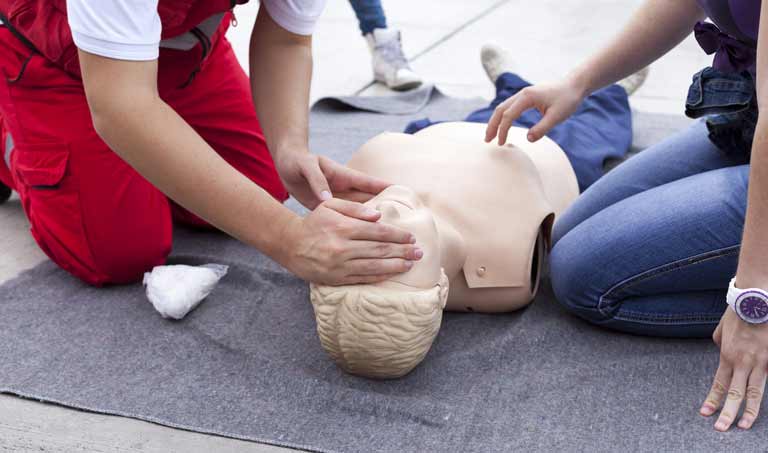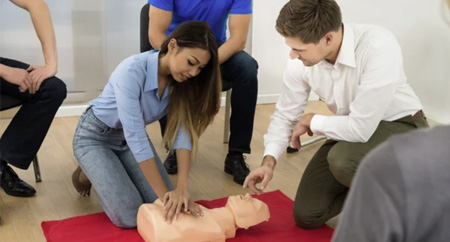Introduction: Recognizing the Importance of Emergency Treatment Courses
First help courses are invaluable for any individual looking to equip themselves with life-saving skills. Whether you are a parent, teacher, caretaker, or just an interested person, understanding emergency treatment can make all the difference in emergency situation scenarios. However, there are several misconceptions surrounding these courses that might discourage people from registering. This post aims to debunk these misconceptions and supply quality on what emergency treatment and CPR training courses really entail.
What is a First Aid Course?
A first aid course is a training program designed to educate individuals just how to respond efficiently to clinical emergency situations. These training courses cover a selection of subjects consisting of mouth-to-mouth resuscitation (Cardiopulmonary Resuscitation), wound treatment, choking relief, and therapy for burns and cracks. Participants generally learn through hands-on method alongside academic knowledge, permitting them to gain confidence when confronted with real-life scenarios.
The Value of CPR in Emergency Treatment Training
CPR is among one of the most critical elements taught in first aid training courses. The capacity to perform CPR efficiently can imply the distinction in between life and death for somebody experiencing heart attack. In the majority of emergency treatment and mouth-to-mouth resuscitation courses, individuals are trained on the correct methods for adult, kid, and infant CPR. Additionally, they find out how to utilize automated external defibrillators (AEDs), which can significantly raise survival prices if utilized promptly.
Top Misconceptions Regarding First Aid Courses Debunked
Myth 1: First Aid Courses Are Just for Medical care Professionals
One common false impression is that just medical care specialists require to take first aid training courses. This could not be further from the fact!
Why Everyone Ought to Take into consideration Taking an Emergency Treatment Course
Anyone can gain from learning fundamental emergency treatment abilities no matter their profession. Emergencies take place anywhere-- in homes, colleges, work environments, and public areas-- and having trained individuals offered can save lives.
Myth 2: You Required to Be Healthy to Take a CPR Course
Many people believe that being healthy is a requirement for taking mouth-to-mouth resuscitation courses.
Reality Examine: No Physical Fitness Level Required
In fact, these training courses are made for all health and fitness degrees. While some First Aid courses available in Mackay physical jobs may be entailed (such as doing chest compressions), teachers adapt training techniques so everybody can participate fully.
Myth 3: Emergency treatment Training Is As Well Complicated to Understand
Another misconception revolves around the understanding that emergency treatment training is too intricate or technical.
Simplifying Complex Procedures
First help training courses utilize simple language and practical demonstrations that make discovering easily accessible for everyone. The majority of people find they can grasp the principles with loved one simplicity after just a few hours of training.
Myth 4: Accreditation Is Only Crucial for Certain Professions
Some people think that acquiring a first help certificate is only valuable if you operate in specific areas like medical care or education.
Certification Issues Throughout All Fields
In reality, several companies throughout different markets choose or require employees to have current emergency treatment accreditations as part of their work environment safety and security protocols.
Myth 5: When Trained, You Do Not Need Refreshers
People often believe that once they have actually finished their training, they're established for life!
Lifelong Discovering Is Key
However, clinical suggestions and treatments progress with time. Regular refresher courses ensure your skills continue to be up-to-date-- preferably every 2 years-- to preserve your first aid certificate status.
Myth 6: Online Training Is Equally As Reliable as In-Person Training
With online learning gaining popularity, many think it supplies an equivalent degree of education compared to in-person classes.
Hands-On Technique Trumps Screen Time
While on-line sources offer beneficial information, absolutely nothing beats hands-on method offered by qualified trainers throughout in-person sessions where you can interact with devices like AEDs and technique strategies on mannequins.
Key Parts of Emergency treatment Courses
Understanding Different Sorts of Emergency Treatment Gushes Available
When it involves selecting a first aid course, you'll discover different offerings customized for different demands:
- Basic Life Support (BLS) Pediatric First Aid Wilderness First Aid Workplace Safety and security Training
Each type highlights distinct web content based on the atmosphere where skills may be applied.
Importance of Hands-On Technique in Learning Mouth-to-mouth Resuscitation Techniques
Why Practical Experience Matters More Than Theory Alone?
One significant facet that establishes efficient first aid programs apart is the hands-on experience they supply participants. Engaging directly with resuscitation strategies enables learners not only to recognize yet also preserve critical information far better than with lectures alone.
How Lengthy Does It Require To Full an Emergency Treatment Course?
Typical Period Ranges Based upon Certification Type
Generally talking:
- Basic first-aid training may take anywhere from 4-8 hours. Comprehensive programs like First Help and CPR course can last up to 16-20 hours over a number of days.
The period typically depends upon accreditation requirements or organizational needs.
What Is Covered in a Typical Emergency Treatment Course?
Key Topics Typically Included
Recognizing emergencies Assessing targets' conditions Performing CPR Using AEDs Treating injuries & & burns Managing choking incidentsThese foundational topics prepare people for various emergency situation circumstances they'll likely experience throughout life.
FAQs Concerning First Aid Courses
FAQ 1: What ought to I offer my emergency treatment course?
Most training courses supply tools; nevertheless, bringing individual note-taking materials can help boost your understanding during sessions.
FAQ 2: How frequently should I restore my certification?
Typically every two years is advised; this guarantees you're upgraded on any type of adjustments in guidelines or procedures within first-aid practices.
FAQ 3: Can I receive my qualification online?
While some components may be finished online (like theory), practical abilities must typically be shown personally under guidance prior to accreditation is granted.
FAQ 4: Do I need prior experience prior to enrolling?
No prior experience needed! Most beginner-level courses welcome those without any background understanding whatsoever; they're created specifically for newcomers!

FAQ 5: What effect does learning first-aid contend my workplace?
Having certified personnel promotes a setting where safety and security becomes prioritized-- it equips associates with important skills leading in the direction of quicker responsiveness throughout unanticipated events!

FAQ 6: Are there special factors to consider pertaining to kids's safety when learning more about pediatric-first-aid?
Absolutely! Pediatric-specific programs concentrate heavily on age-related subtleties making certain caregivers feel great reacting suitably when faced with emergency situations entailing infants/children!
Conclusion
Understanding the top misconceptions regarding emergency treatment training courses assists debunk this necessary training while motivating widespread participation across demographics that might otherwise shy away due false impressions! Not just does completing such programs equip individuals within areas-- they additionally cultivate more secure environments via boosted understanding paired with readiness amongst residents all over making every effort towards boosted wellness results general! So don't wait-- sign up today into among those impactful CPR or other relevant first-aid-courses!
